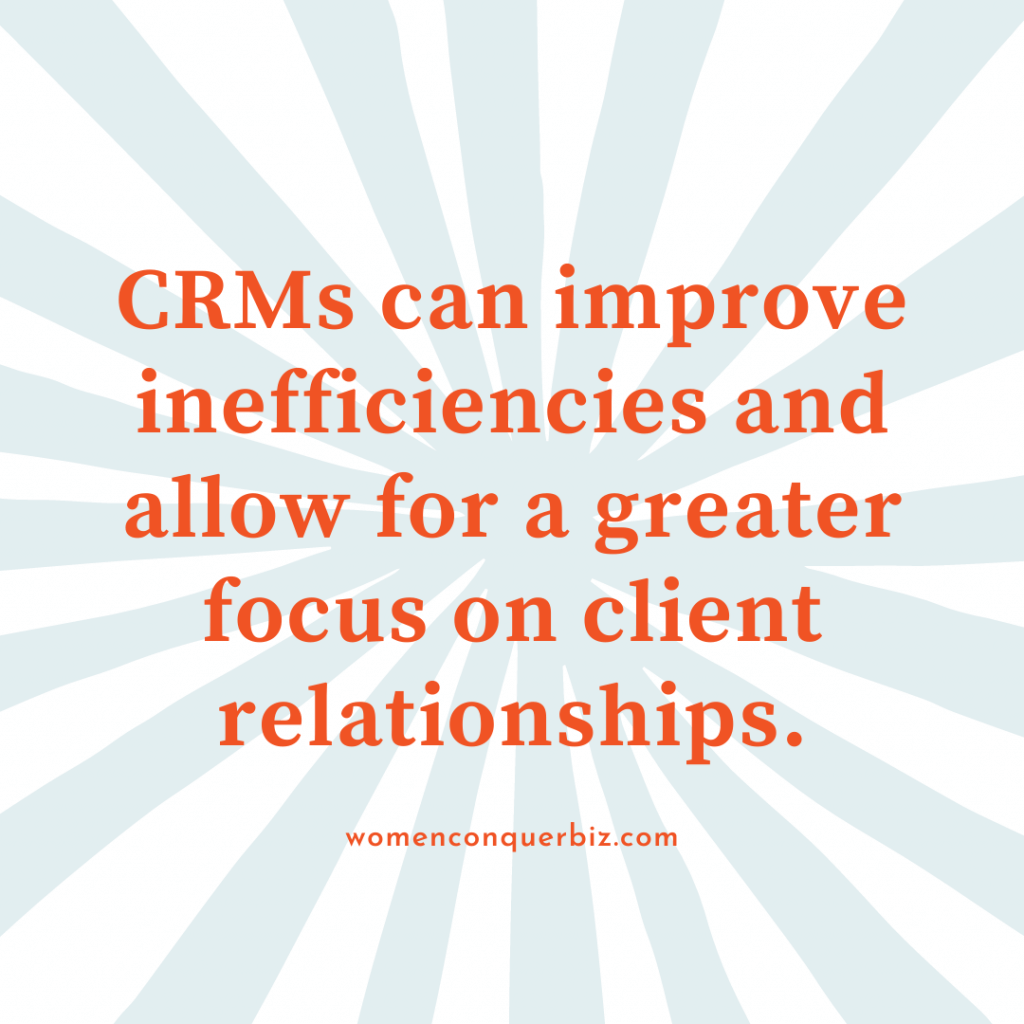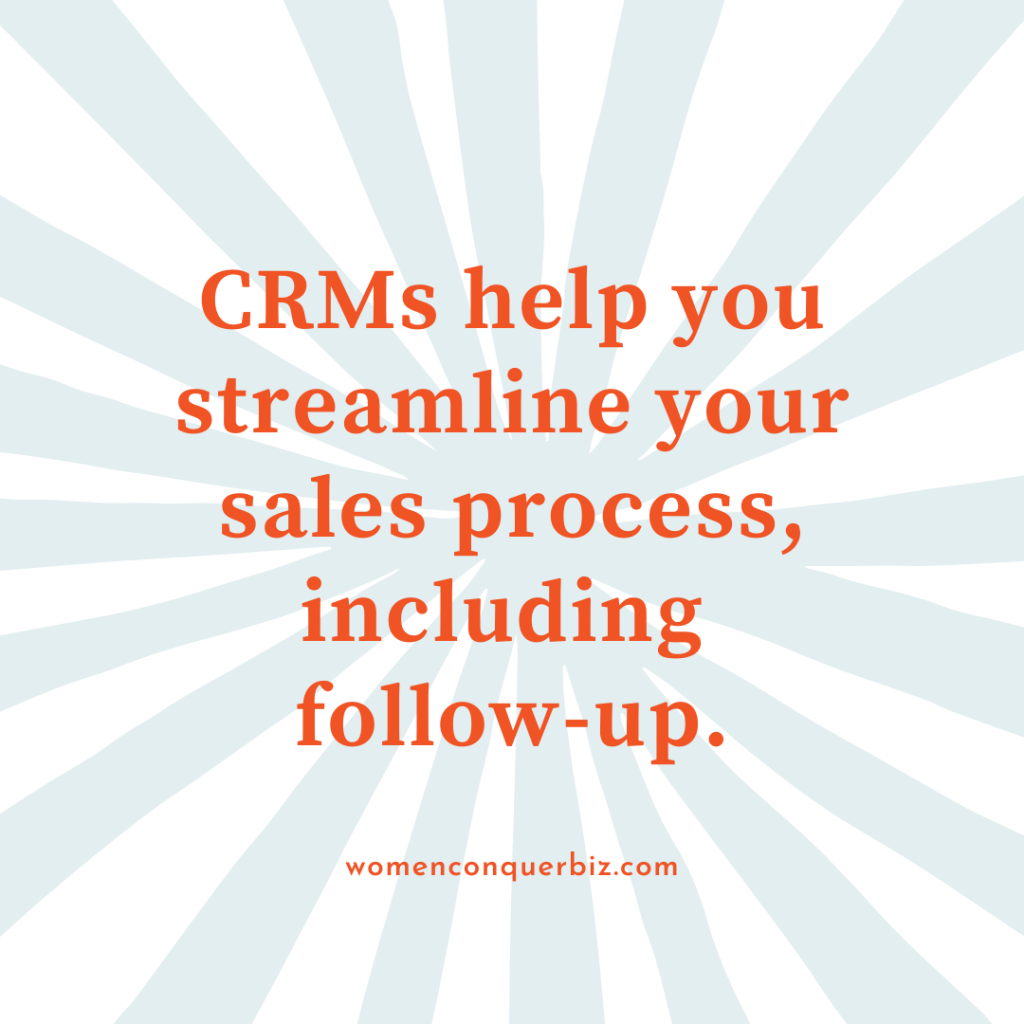Did you know that there are almost 30 million small businesses in the US? Or that they employ 47.8 percent of American workers? In other words, small businesses have a significant impact on the economy through innovation and job creation.
If you’re a small business owner, you likely have A LOT on your plate every day. You may feel mired by less than efficient processes, from email marketing to customer relationship management (CRM) and invoicing.
If you don’t feel “tech-oriented,” you may end up even more bogged down by re-work of multiple systems. Fortunately, a CRM system can help you streamline business processes and increase productivity.
Here’s what you need to know about how CRM helps business and how they can improve your business agility in 2021.
Why You Need to Focus on Customer Retention & Relationships
Whether you’ve been in business for one year or ten, you probably have a unique set of business processes in place. But how efficient are they? Have you given this question any thought recently?
While you might feel like you’re barely scraping by and don’t have time to analyze bigger systems, it’s vital that you consider customer relationship management (CRM).
What you may not understand is that focusing on CRM comes with many excellent benefits. Not only does it allow business owners to improve inefficiencies in the company, but it allows for a greater focus on client relationships.
These relationships are vital, and you can’t afford to ignore them. After all, customers have different expectations today than ever before. They expect personalization instead of being treated like a number or statistic.
Fortunately, CRM software allows you to create better relationships with your customers. When you make building relationships a top priority, you can expand customer loyalty and trust. In a nutshell, CRM software lets you be more attentive to your customers’ needs.
It lets you provide them with a more personalized experience. As a result, when the public does business with your brand, they’ll come away feeling good about your company. And they’ll return to do business again.

How a CRM Helps Businesses
What’s your initial thought when I mention how CRM helps business? Do you feel nervous or anxious about applying software to your business processes? If so, I get it.
Many business owners feel hesitant to add new tech tools to the mix, especially if they feel their system works well enough. But you may not realize that eschewing innovation could be condemning your enterprise to stagnation.
After all, CRM software can increase sales productivity. It can help you train employees more quickly, and it can lead to faster, smarter response times. What’s more, the best software will makes sales a cinch, too.
How CRM helps Business & How does it work? CRM software permits employees to gather valuable data about clients. It also permits them to integrate this information into a company’s marketing efforts every step of the way. You can even bring mobile platforms and social media into the system.
In the process, your company will gain new tools for targeting potential customer, no matter where they are in the buyer’s journey. And you’ll be able to do this through computers and telephones. You’ll gain the resources that you need to be a more agile leader.
How a CRM Helps Business By Allowing You Stay Organized and Increase Productivity
Still aren’t convinced CRM software can help your company? Let’s take a closer look at how it can improve efficiencies.
Completing sales transactions proves a breeze with CRM software. This goes for all aspects of your customer journey. The best software makes it easy to record all client interactions and purchasing history in one system.
It makes every step of the sales process more efficient. It also makes everyone’s job easier, permitting employees to focus on what really matters, keeping customers happy.
CRM software can also help automate processes from text message marketing to checkout and email outreach. And it can facilitate levels of personalization you never thought possible.
How? By keeping track of things like repeat customers’ contact information and preferences. You or your sales team can then use this data to provide customers with messaging tailored to their specific needs and interests.
Specific Applications of Retail CRM Software
What are some specific ways that CRM software can enhance the retail experience? The best software has the ability to:
- Personalize customer care
- Facilitate list segmentation
- Reduce employee training time
- Streamline the sales process
- Simplify inventory management
- Integrate with other programs
We’ve already mentioned a few examples of how these innovations may work. But let’s dive into each of these potentialities in greater depth.

Personalize Customer Care
Did you know that 73 percent of consumers say they’d buy from a company tracking their personal information to improve their shopping experience’s relevancy? This eye-opening statistic shows how vital CRM software is to growing and maintaining your customer base.
Of course, bigger-ticket items require even more personalization and relevancy at various points along the customer journey. CRM allows your company to meet customers where they are and nudge them towards a sale.
Facilitate List Segmentation
In recent years, there’s been plenty of buzz about the importance of list segmentation. Segmenting customers based on where they fall along the buyer’s journey, their interests, and more, lets you target the most relevant recipients of different messages.
You may also choose to segment lists based on life stage, demographics, geography, and other factors. For example, a clothing retailer might track where customers live and send different clothing promotions based on a customer’s climate.
CRM lets you do this, making your communications to customers smarter and more effective. You’ll also decrease the likelihood customers will get turned off by your message and unsubscribe.
Stop Wasting Time on Redundant Employee Training
There are many excellent reasons to get onboard with CRM software. Another of my favorites is reducing employee training times. After all, when you have all of your systems integrated, that means fewer steps to teach new employees.
The right software system will empower your employees, making them feel more confident and efficient. And with time saved on menial aspects of the employee-customer relationship, such as checkout, it frees your customers up to focus on exceptional service.
Streamline the Sales Process
You can also use CRM software to track each customer’s original intent. That way, your employees can pick up the dialogue with each customer right where they left off.
This approach also provides your employees with the knowledge that they need to offer customers relevant upsells and complementary items.
For example, let’s say you’re dealing with a client who recently purchased a new set of dishes. Keeping track of this information will help your employees to suggest matching silverware, a table cloth, and cloth napkins.
Simplify Stock Management
If your business handles inventory, stocking and re-stocking can be a real headache to manage at a retail location. But you can streamline updates through CRM software. What’s more, these updates will happen in real-time, which proves especially critical for online sales.
After all, you don’t want a customer to go through the rigamarole of purchasing an item only to find out a week later that you’re out of stock and can’t ship it. CRM software also makes it easier for your employees to obtain what your customers want by managing stock from afar.
Integrate with Other Programs
As a small business owner, you wear a variety of different hats. For this reason, you likely feel burdened by mountains of re-work. But CRM software can help by syncing with other programs that collect customer email addresses, such as Office 365 and Google Workplace, email marketing systems, payment processing systems, and accounting software.
These integrations will remove steps from the process, making it easier for you and your employees to handle every aspect of the business. You’ll also enjoy immediate access to information you never thought possible, enhancing the skill and rapidity of decision-making.
Finding the Best CRM Software for Your Needs
CRM software facilitates integration with other services, including like email marketing and other marketing automations. And it spares you the necessity of double entries.
You can use this software to streamline tasks and collaboration features, creating efficiencies in your sales process. As you look for the best CRM software, make sure it has all of the key features you need to go through your sales process.
How do you do this? Start by mapping out your customer journey so you can protect everything is covered in any product you choose. Remember, too, that your CRM has to integrate with the rest of your tech stack.
Are you ready to streamline your business' marketing automation with the best CRM software solutions for your current needs? If so, I’m here to help. Find out more about the benefits of marketing automation and which software system’s right for you.



